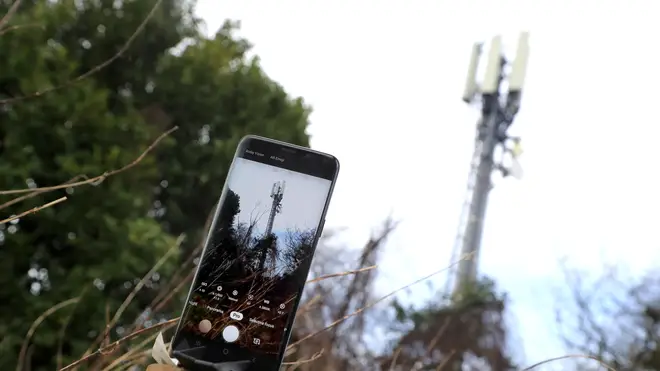
Shelagh Fogarty 1pm - 4pm
8 December 2021, 00:04

Culture Secretary Nadine Dorries said the move would free up spectrum for new technology and boost security.
2G and 3G mobile networks are to be phased out of use in the UK by 2033 as part of Government measures to increase the security of telecoms supply chains, the Culture Secretary has said.
Nadine Dorries said the UK would, in agreement with the country’s major networks, switch off all public 2G and 3G networks to free up spectrum for 5G and other future network technology.
The Culture Secretary said the move would support a smoother transition to faster mobile networks and would make it easier for new suppliers to enter the market, supporting Government plans to diversify its suppliers in the wake of its banning of Chinese firm Huawei.

The Government said there were wider benefits to the mood, including making it simpler to run networks as operators do not have to deal with the challenges which can arise from running up to four networks.
The announcement has been made alongside a commitment to spend £50 million on telecoms research and development projects and as Ms Dorries visits the US to meet with US Secretary for Commerce Gina Raimondo.
“5G technology is already revolutionising people’s lives and businesses – connecting people across the UK with faster mobile data and making businesses more productive,” Ms Dorries said.
“Today we are announcing a further £50 million to put the UK at the forefront of mobile connectivity and to make sure our telecoms networks are safe and secure now and in the future.
“We can only do this through stronger international collaboration and I will be meeting with our US allies today as we strengthen our ties on technology.”
Hamish MacLeod, director of industry body Mobile UK, which represents all the major UK networks, said it welcomed the decision.
“Switching off 2G and 3G will enable operators to transition fully to more energy-efficient and high capacity networks to the benefit of customers,” he said.